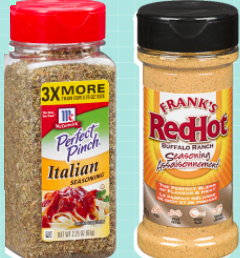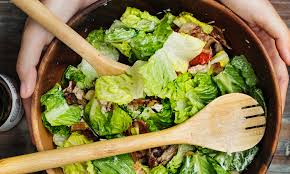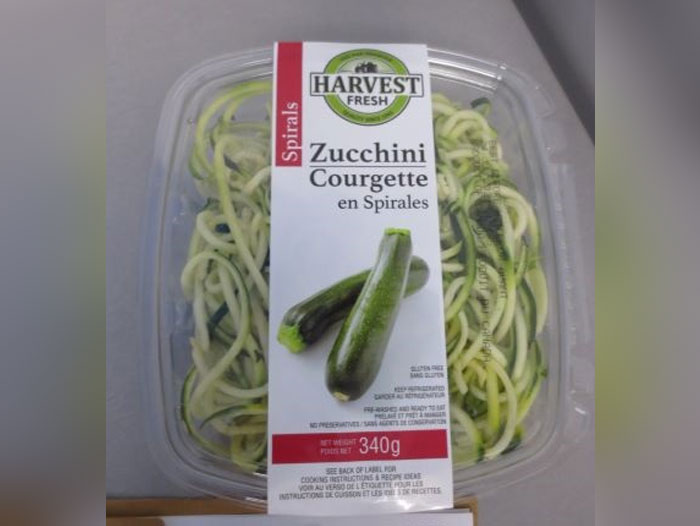The FDA reported that McCormick & Company, Inc. recalled McCormick Culinary Italian Seasoning and Frank’s RedHot Buffalo Ranch Seasoning due to possible contamination with Salmonella. No illnesses have been reported to date in connection with this problem. The four products subject to this recall include McCormick Perfect Pinch Italian Seasoning 1.31 oz bottle, McCormick Perfect Pinch Italian Seasoning 2.25 oz bottle, McCormick Culinary Italian Seasoning 1.75 lbs. bottle, and Frank’s RedHot Buffalo Ranch Seasoning 153g bottle. The four products were shipped from June 20, 2021, through July 21, 2021. The products were shipped to AL, CA, CO, CT, DE, FL, GA, IL, IN, KS, KY, LA, MA, MD, ME, MI, MN, MO, MS, NC, NE, NH, NJ, NY, OH, OK, PA, SC, TN, TX, VA, WI. It was also shipped to Bermuda and Canada. The potential risk was brought to McCormick’s attention by FDA during routine testing. @ https://www.fda.gov/safety/recalls-market-withdrawals-safety-alerts/voluntary-recall-notice-mccormick-italian-seasoning-products-and-franks-redhot-buffalo-ranch?utm_medium=email&utm_source=govdelivery
ruth
McCormick & Company, Inc. is initiating a voluntary recall of McCormick Perfect Pinch Italian Seasoning, McCormick Culinary Italian Seasoning and Frank’s RedHot Buffalo Ranch Seasoning due to possible contamination with Salmonella. Salmonella is an organism that can cause serious and sometimes fatal
ruth
The FDA reported that Excalibur Seasoning Company (Pekin, IL) recalled 17 bottles of Haen Meats 1959 House Blend because it could be contaminated with Listeria monocytogenes. The recalled product reached consumers through a retailer located in the 54130 zip code of WI. The product is in a Clear Plastic Shaker Bottles, labeled Haen Meats 1959 House Blend. No illnesses have been reported to date. The recall results from routine finished product testing that found Listeria monocytogenes to be present in one product. Further ingredient testing found the bacteria may be present in one lot of one ingredient. All products which used this lot of ingredients are being recalled. @ https://www.fda.gov/safety/recalls-market-withdrawals-safety-alerts/excalibur-seasoning-company-recalls-seasoning-blend-because-possible-health-risk?utm_medium=email&utm_source=govdelivery
Excalibur Seasoning Company of Pekin, IL is recalling 17 bottles of Haen Meats 1959 House Blend because it has the potential to be contaminated with Listeria monocytogenes, an organism which can cause serious and sometimes fatal infections in young children, frail or elderly people, and others with
ruth
The FDA reported that Old Souls Farms, LLC (St. Paris, Ohio), recalling greenhouse leafy green products following a positive test of Listeria monocytogenes. The recall includes Arugula, Basil, Finstar, Green Bibb, Romaine, and Spring Mix. The bulk product sizes range from 1 – 25 pounds clear bags. Clamshells range in sizes of 1 oz, 4 oz, and 5 oz. The positive test for Listeria monocytogenes was from a routine facility test of rainwater holding tanks in the greenhouse facility and testing from a customer who received contaminated Basil product. Multiple samples of all products from multiple Lot Codes as well as additional water testing have been completed. The positive test for Listeria monocytogenes in the product has been determined that it was an isolated event. However, out of an abundance of caution, we decided to recall all products as stated above. No illnesses have been reported to date. @ https://www.fda.gov/safety/recalls-market-withdrawals-safety-alerts/old-souls-farms-llc-recalls-leafy-green-products-due-possible-health-risk?utm_medium=email&utm_source=govdelivery
Old Souls Farms, LLC, located at in St. Paris Ohio is initiating a voluntary recall of greenhouse leafy green products following a positive test of Listeria monocytogenes. Listeria monocytogenes is an organism which can cause serious and sometimes fatal infections in young children, frail or elderly
ruth
Canadian Food Inspection Agency (CFIA) reported that Veg Pak Produce recalled Harvest Fresh brand Zucchini Spirals from the marketplace due to possible Listeria monocytogenes contamination. The following product has been sold in Ontario. There have been no reported illnesses associated with the consumption of this product. @ https://www.thepacker.com/news/food-safety/cfia-recall-food-recall-warning-harvest-fresh-brand-zucchini-spirals-recalled-due




